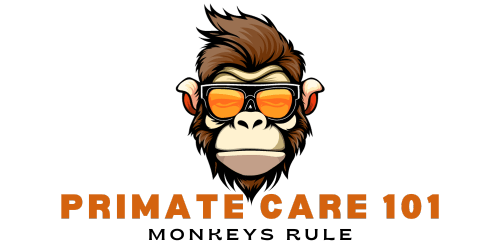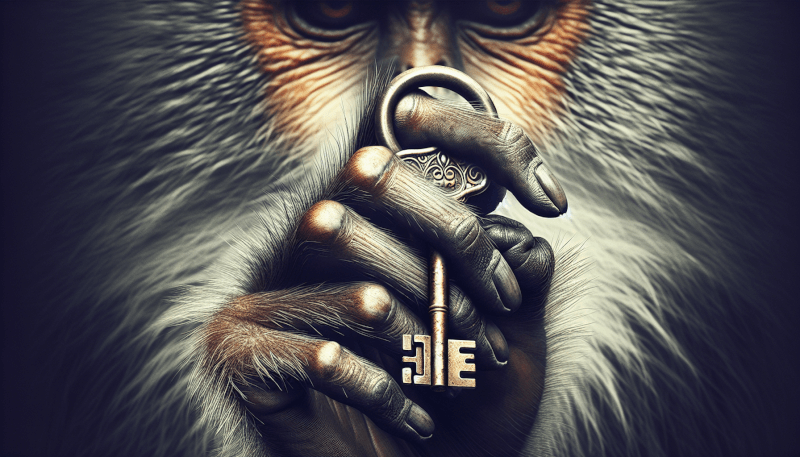Have you ever wondered what the legal age requirement is for owning a pet monkey? It’s a question that sparks curiosity and fascination, especially for those who dream of having a unique and exotic companion like a monkey. In this article, we will explore the regulations and restrictions surrounding pet monkey ownership. From the responsibilities that come with it to the legal age one must reach, we’ll provide you with all the information you need to know before embarking on this extraordinary pet-owning journey. So, let’s find out if you’re old enough to monkey around!
What Is The Legal Age Requirement For Owning A Pet Monkey?
Introduction
If you’ve ever dreamed of having a pet monkey, you may be wondering about the legal age requirement for owning one. While monkeys are undeniably adorable and fascinating creatures, there are various laws and regulations in place to ensure their well-being and safety as well as the safety of the general public. In this article, we will explore the legality of owning pet monkeys, different laws and regulations at the federal and state levels, age restrictions, owner responsibilities, and the consequences of illegal monkey ownership. So, let’s dive in!
Understanding the Legality of Owning Pet Monkeys
Before considering the age requirement for owning a pet monkey, it’s essential to understand the overall legality of monkey ownership. The laws and regulations regarding pet monkeys can be complex and vary between countries, states, and even local municipalities. It’s crucial to research and familiarize yourself with the specific laws and regulations in your area to ensure you are fully compliant.
Different Laws and Regulations
The laws governing pet monkey ownership can be broadly categorized into federal and state regulations. The federal laws in countries like the United States provide a baseline for monkey ownership, while state laws may impose additional restrictions or requirements. It’s essential to consider both federal and state laws to ensure you are complying with all necessary regulations.
Federal Laws Regarding Pet Monkeys
In the United States, the federal laws regarding pet monkeys primarily fall under the jurisdiction of the U.S. Department of Agriculture (USDA) and the Centers for Disease Control and Prevention (CDC). The USDA regulates the possession, exhibition, and transportation of monkeys under the Animal Welfare Act. This act ensures the humane treatment and well-being of animals, including monkeys, in different settings.
Additionally, the CDC plays a crucial role in preventing the spread of diseases from monkeys to humans. They have guidelines and regulations related to the importation and interstate transportation of nonhuman primates. These regulations aim to protect public health and prevent the transmission of zoonotic diseases.
State Laws Regarding Pet Monkeys
While federal laws set the baseline for monkey ownership, individual states have the authority to create their own regulations and restrictions. Some states may completely prohibit private ownership of monkeys, while others may allow ownership with certain permits and requirements. It’s essential to research your state laws and consult local authorities to ensure you are meeting all state-specific regulations.
Age Restrictions for Owning Pet Monkeys
When it comes to the legal age requirement for owning a pet monkey, it can vary depending on the state. Some states have specific age restrictions in place, while others may not have explicit guidelines. In states where there are age restrictions, it is typically required that the owner be at least 18 years old.
The rationale behind these age restrictions is to ensure that the owner is mature enough to understand the responsibilities and commitment involved in properly caring for a pet monkey. Monkeys, like any other pet, require a significant amount of time, effort, and resources to provide them with a suitable living environment and proper care. By setting an age requirement, states aim to ensure that the ownership is taken seriously and not taken on by individuals who may not be equipped to meet their needs.
Pet Monkey Owner Responsibilities
Owning a pet monkey comes with a considerable set of responsibilities. It is essential to understand and be prepared for these responsibilities before deciding to bring a monkey into your home.
First and foremost, monkeys require a specialized living environment that mimics their natural habitat as closely as possible. This includes providing enough space for them to move around, climb, and engage in natural behaviors. You will need to create an enclosure that is safe, secure, and stimulating for the monkey.
Feeding and nutrition is another essential aspect of monkey care. Monkeys have specific dietary needs that must be met to ensure their health and well-being. It’s crucial to consult with a veterinarian who specializes in primate care to create a proper diet plan for your monkey.
Additionally, monkeys are social animals and require mental stimulation and social interaction. As a responsible owner, you must dedicate time to actively engage and bond with your pet monkey. It requires both physical and mental enrichment to keep them healthy and happy.
Permit and License Requirements
In states where pet monkey ownership is allowed, there are often permit and license requirements that must be met. These permits typically require potential owners to demonstrate their ability to provide appropriate care for the monkey. They may include background checks, home inspections, and proof of financial stability to cover the costs associated with owning a monkey.
It’s important to note that even if a permit or license is not required in your state, it is still crucial to provide the best care for your pet monkey. Researching and following guidelines set by reputable primate organizations and consulting with veterinarians who specialize in primate care can help you ensure the well-being of your monkey.
The Consequences of Illegal Monkey Ownership
Engaging in illegal monkey ownership can have severe consequences. Violating laws and regulations regarding monkey ownership can result in fines, confiscation of the monkey, and even criminal charges. It’s essential to respect and abide by the laws in place to ensure the welfare of both the monkey and the public.
Additionally, owning a monkey without proper understanding or preparation can lead to significant welfare issues for the animal. Monkeys are highly intelligent and social creatures that require a significant investment of time, effort, and resources. Failure to meet their needs can result in behavioral issues, health problems, and a diminished quality of life for the monkey.
Conclusion
Owning a pet monkey is an appealing idea for many, but it comes with significant responsibilities and legal considerations. Understanding the legality of owning pet monkeys at both the federal and state levels, as well as adhering to age restrictions and permit requirements, is crucial for a successful and ethical ownership experience. Remember, the well-being and welfare of the monkey should always be the top priority. By being a responsible and informed owner, you can ensure a safe and fulfilling life for both you and your pet monkey.


